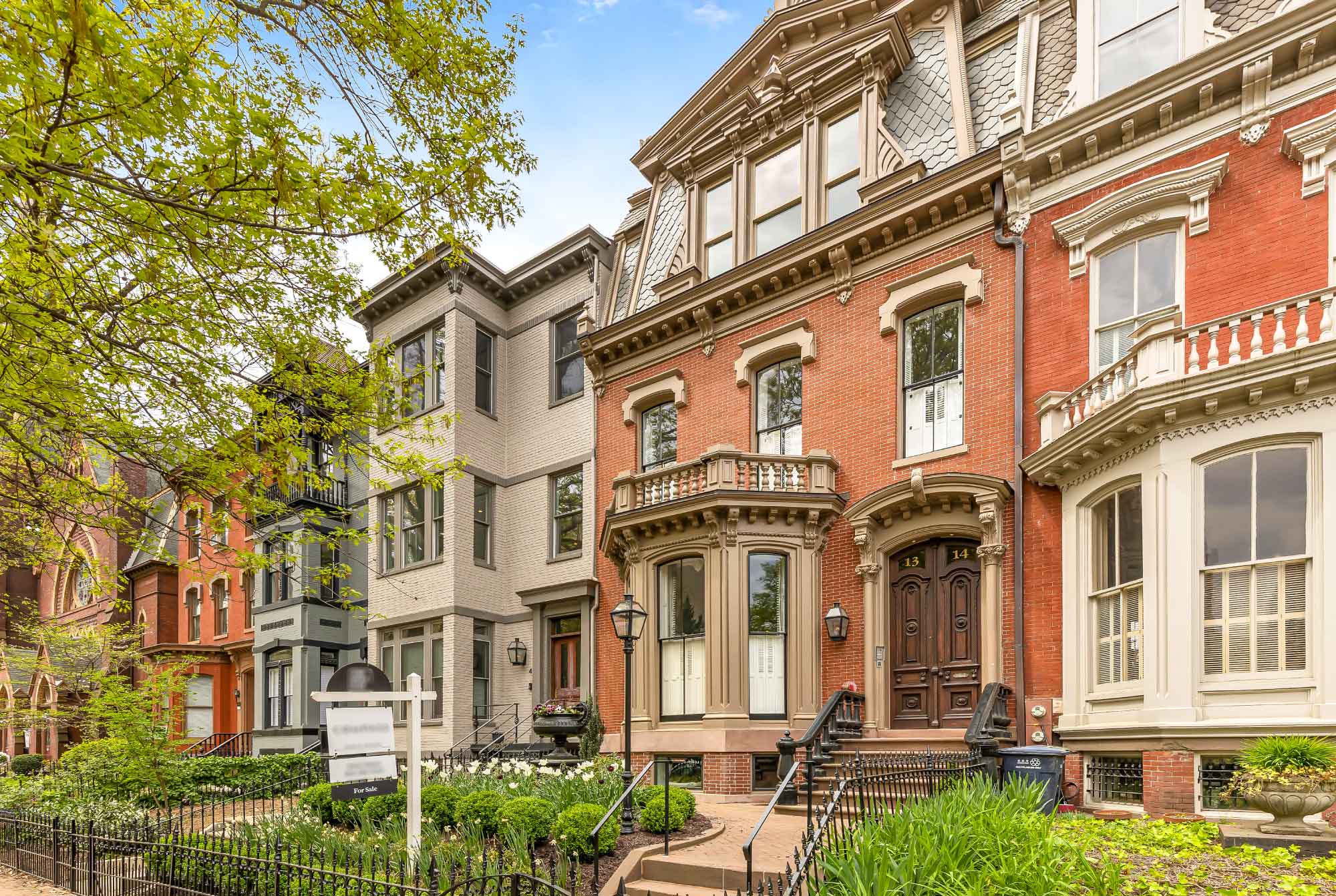Stacked Townhouse vs Condo vs Apartment: What’s the Difference?
If you’re planning to buy this fall (or anytime soon), there’s a good chance you’re familiar with the age-old real estate debate: stacked townhouse, condo, or apartment? Not to fear — today, we’re breaking down the difference for you here as well as the advantages to each style of living.
Stacked Townhouse:
Also called a two-over-two or maisonette, the stacked townhouse is basically a row house divided into a couple two-story units, one over the other. Both units have doors that open out onto the street, making it all look like one big house. In short? A stacked townhouse isn’t quite a house or an apartment, but rather a good alternative choice in places where the only options are a detached house or a high-rise.
Today’s stacked townhouses are either sold individually as condos, or rented out as apartments in a larger complex. They’ve become popular in the DC area within the past 20 years for a couple of reasons. For starters, builders like stacked townhouses because they take up the same amount of space as one townhouse, which saves on land and infrastructure costs. Unlike traditional apartment or condo buildings, these homes don’t tend to have common hallways and lobbies that can be expensive to build and maintain. But the real allure of stacked townhouses is in the space and privacy they provide at a lower price, enabling buyers to live closer in than they could otherwise afford.
✔︎ Interested? Check out our latest listings to find the stacked townhouse of your dreams. Or read these posts next to learn more about property types in DC:
- Condos Vs. Co-Op: What’s the Difference?
- Understanding Resale Potential when Buying a Condo
- What to Know Before Buying a Home in DC
Condo:
A condominium, called “condo” for short, is a privately-owned individual unit within a community of other units. Condo owners jointly own shared common areas, such as pools, garages, elevators, outside hallways, and gyms — to name a few. While condos are usually found in high-rise buildings, you can also find detached condos in some markets.
So, why buy a condo? For many buyers, it all comes down to simplicity. Condo residents are typically only responsible for their interior, while the rest is handled by a professional management company. There’s no lawn to cut, flowerbeds to maintain, or driveways to be cleared of snow.
And then, of course, there’s the price tag. Condos have historically been more affordable than single-family homes, and that trend continues today. In fact, condos appreciated at a slower pace than that of single-family homes in 2020, according to Black Knight data, and sold for approximately 17 percent less, representing a savings of around $58,000, real estate brokerage Redfin reports.
New Condos in DC:
Already sold on condo life? Check out the city’s latest developments here to find the condo of your dreams.
Apartment:
If you’re thinking to yourself — wait a second, didn’t we already cover this topic? Don’t worry: you’re not alone. The truth is, the difference between apartments and condos is so nuanced these days that it’s way too easy to conflate the two styles altogether.
To set the record straight: yes, apartments and condominiums (or condos for short) can be identical units within the same building. The difference between them, however, is ownership. Apartments are typically housed within a complex of dozens or hundreds of similar units, and the units are owned by a single entity and leased out. A condo, on the other hand, is owned by one individual (or couple, etc) and is either owner-occupied or rented out.
So: while condos and apartments are very similar — and will often look the same — apartments are typically managed by a large group, while if a condo is rented, the owner and renter are more likely to have 1-on-1 communication (unless the condo owner hires a management group to oversee the apartment).
✔︎ Ready to start your search? Click here for our latest listings or keep reading for more tips on buying a home in DC:
- When is the Best Time to Buy a Home in DC?
- How to Make Your Home Offer Stand Out
- How Many Homes Should You Tour Before Submitting an Offer
The bottom line? Regardless of your real estate aspirations, there’s a home here for you — and plenty of choices to help you find it.
Looking to learn more? Contact us today to discuss your real estate future! You can also call us directly at 202.280.2060 or email us at js****@*******ra.com.
Put Us To Work For You
Book a consultation with our team today.
